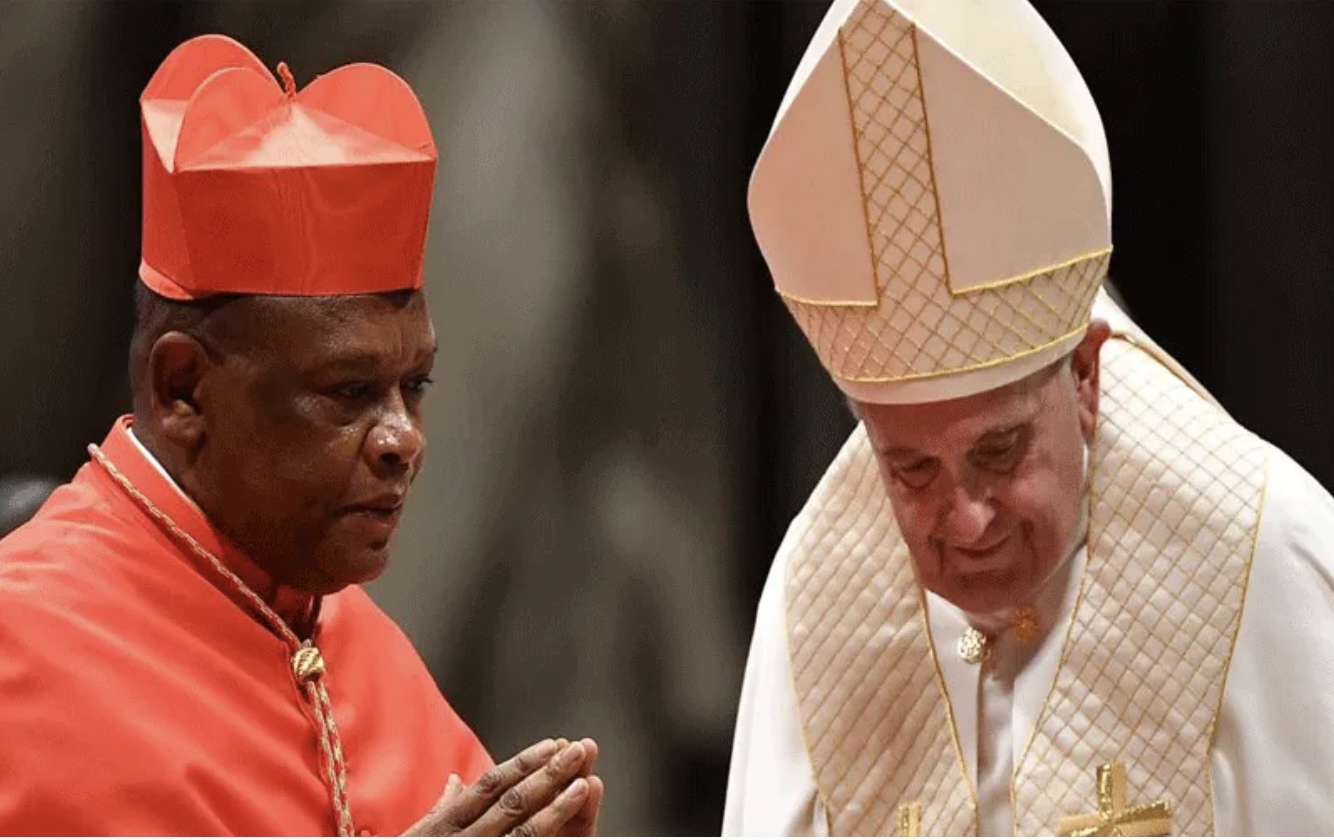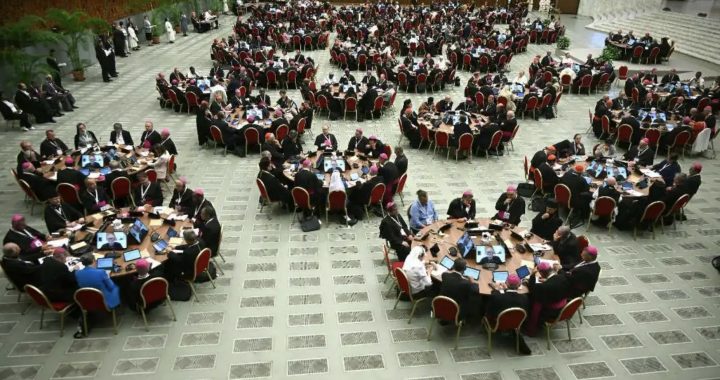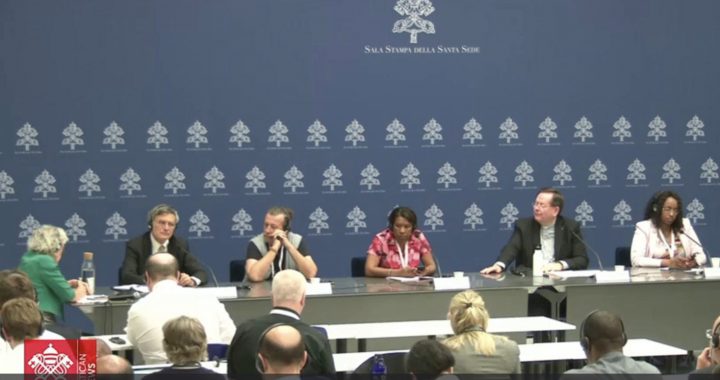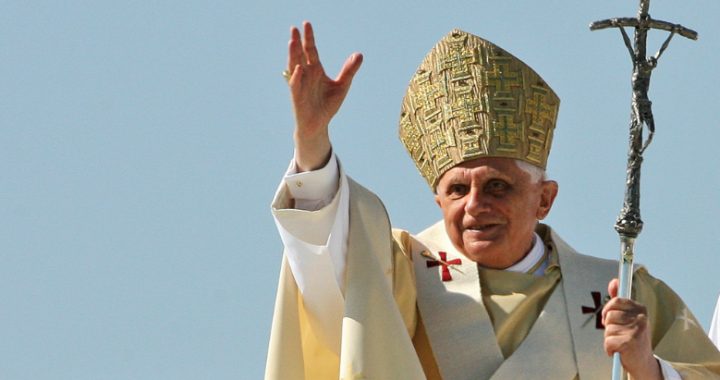Assembly is about new way of doing Church, approaching problems: Card Ambongo
When a child falls by the wayside, is disobedient, rebellious and frequently returns home late, the first thing loving and concerned parents usually do is to find the reasons behind the errant behaviour.
Few, if any, ground children for misdeeds or use the “spare the rod and spoil the child” tool, although some parents still swear by this.
Instead, the preferred option is to ponder questions not only of their son or daughter but if there are negative external factors influencing their children. Or, if they, as parents, have somehow made missteps along the way.
To discover the reasons requires listening to the child speak and understanding the root cause of his errant behaviour. It could reveal he feels unloved. Perhaps his parents have not been attending to his problems and needs. Once they are able to identify the causes, the next step is to how to address them in the right way that doesn’t compromise his or their own good.
A doctor can only prescribe the right medication if he accurately diagnoses his patient.
This is exactly the steps the ongoing Synod in Rome is taking. It consists of the first two steps: listening and identifying the most pressing issues the Church faces today. The third step on how to address them is likely to take place after the second of the final phase of the Synod is completed in Rome next October.
Synod is about new way to approach problems
Cardinal Fridolin Ambongo of Kinshasa, Congo, emphasises this point that the Synod is not geared to “resolve particular problems” in the Church, but to explore ways to discuss and address such issues. “There are a lot of people who believe that this Synod will bring solutions to all problems,” he adds during a news conference on Saturday (7 Oct 2023) at the Vatican at the end of the first week of the Synod.
“But the Synod will define the new way of ‘doing’ Church, the new way of approaching problems, what the problem is but also how in the spirit of synodality we will approach that problem.”
Ambongo is not saying anything new. In fact, when the official Synod handbook was issued on 7 Sept 2021, it spelt out the way the assembly of all Catholics will be conducted and its objective from the parish and diocesan levels to the continental and universal phases.
The objective of this Synodal Process is not to provide a temporary or one-time experience of synodality, but rather to provide an opportunity for the entire People of God to discern together how to move forward on the path towards being a more synodal Church in the long-term.
Thus, the teaching authority of the Pope and the bishops is in dialogue with the sensus fidelium, the living voice of the People of God (cf. Sensus Fidei in the Life of the Church, 74). The path of synodality seeks to make pastoral decisions that reflect the will of God as closely as possible, grounding them in the living voice of the People of God (ICT, Syn., 68).
Chapter 1.3 (Handbook) What is the aim of this Synod? Objectives of the Synodal Process
On knowing the Will of God, Ambongo says, “People cannot easily say, ‘I know the will of God,’ that would be truly pretentious. That is why the Synod rightly chose the method of discerning.”
This, he adds, entails seeking together “that which seems today and right now the best solution” to a given issue.
The Synod, therefore, opens a path to listening to the “living voice of the People of God”. Only then, the teaching authority of the Pope and the bishops will proceed in seeking to make pastoral decisions that “reflect the will of God”.
So, why were there questions raised that the Synod will do otherwise, especially in the five dubias five cardinals submitted to Pope Francis “if synodality can be the supreme regulatory criterion of the permanent governance of the Church?” This was posed on the backdrop of contentious issues regarding the blessing of same-sex unions and women’s ordination.

If any person of goodwill had carefully read the handbook, these questions would not have been raised at all because it is clear the Synod will not be making any pastoral decisions, let alone doctrinal ones.
At the Saturday press conference, Cardinal Fridolin reemphasises this point, “We are here for a synod on synodality. Synodality does not mean expressing personal opinions, but walking together. On the LGBT question, the Lord himself will show us the way through collective discernment.”
One wonders how many who gave weight to the dubias and repeated them actually read the Handbook? It would be good and charitable if they did.
Why not only bishops can vote at Synod
Another issue that sparked heated debate was about Synod voting rights given to not only bishops, but to other clergy, and male and female religious and lay persons.
As we have already established, the Synod will not be making or is in a position to make any decision that will bind the Church. We were given a clearer picture just before the start of the synod what the votes were tied to.
During the month-long Synod cardinals, bishops, priests, religious, lay women and men will be broken up into 35 working groups. Each will have between 10 and 12 people, including 14 groups working in English, eight in Italian, seven in Spanish, five in French and one in Portuguese.
Dr Paolo Ruffini, prefect of the Dicastery for Communication and president of the assembly’s Commission for Information, added that each group will be asked to draft a short report on their conversation. They will then vote on whether it accurately reflects the discussion and then choose someone to read it to the whole assembly.
After a discussion of all the reports in the full assembly, each group will then decide whether or how to amend their reports before turning them into the synod secretariat for inclusion in a summary report on that section of the synod’s work.
The votes, therefore, has nothing to do with any pastoral or doctrinal matters that the Church must abide with but rather about if the reports accurately reflect their respective discussions.
As we continue to seek information on the progress of the Synod, we must tab on trusted and accurate news outlets, one of which is certainly from the press conferences that Dr Ruffini’s team puts together each week.
Seeking views from suspect outside sources, Catholic or otherwise, that tell a different story skewed towards their opinions or even agendas are unhelpful to ordinary Catholics and can mislead them and create divisions in the Church.




